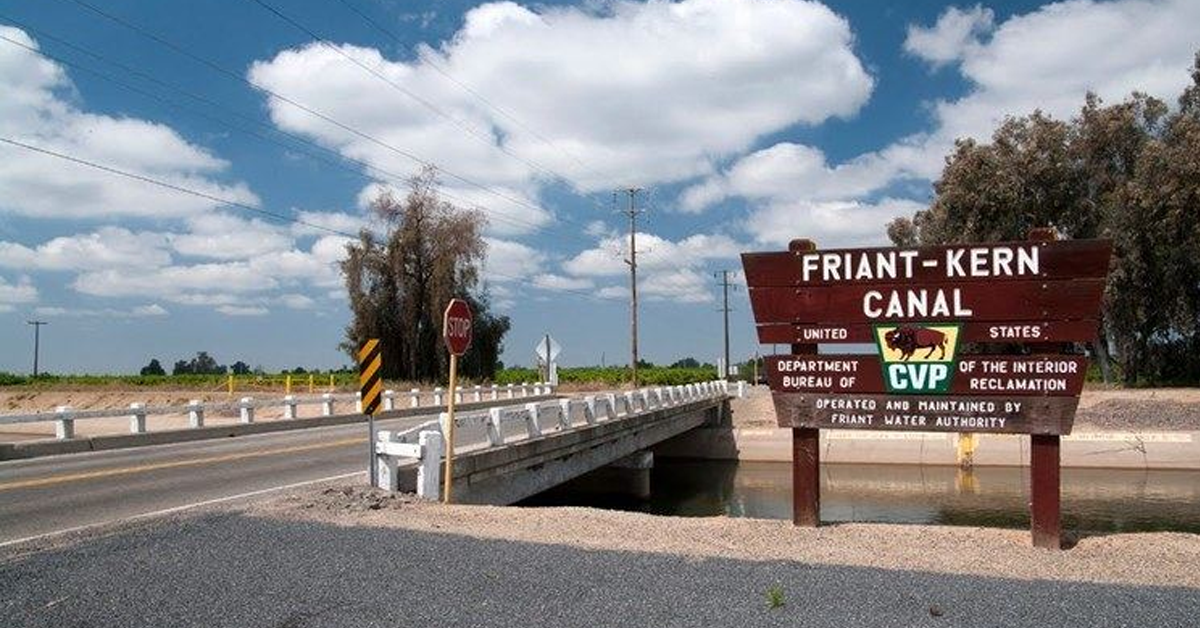San Joaquin Valley and Southern California water users launched a legal blitz late Tuesday night, filing three lawsuits against the Newsom administration to challenge the validity of the state’s newly-issued environmental rules that seek to restrict pumping water from the Sacramento-San Joaquin Delta through the State Water Project.
The suits, all filed in Fresno County Superior Court, mark yet another turn in the new chapter of California’s Water Wars led by a conflict in environmental rules issued by the Federal government and the Newsom administration.
In sum, the three suits paint a picture of a state regulatory process reacting to the authorship and adoption of Federal biological opinions for the Central Valley Project by the Trump administration while eschewing key hallmarks of California’s robust environmental protection laws.
Regulation at the center of litigation
In February, the U.S. Bureau of Reclamation issued a record of decision to formally adopt new biological opinions, a set of environmental guidelines governing the operation of the Central Valley Project, capping a three-year development process.
The new guidelines provide water managers with Reclamation and the U.S. Fish and Wildlife Service the autonomy to engage in real-time monitoring of Delta conditions, including endangered fish populations, to direct pumping water to the Valley and Southern California communities.
Minutes before a rally in Bakersfield to celebrate the change, California Gov. Gavin Newsom and Attorney General Xavier Becerra initiated a lawsuit to block implementation of the new guidelines. Separately, environmental groups have sued to nix the Federal regulations.
One month after the Federal biological opinions were adopted, the Newsom administration unveiled an incidental take permit, a set of its own environmental guidelines, to govern the State Water Project (SWP).
The incidental take permit shifts the final decision-making authority for pumping water from the Delta, long-held by the California Department of Water Resources, to the California Department of Fish and Wildlife.
For State Water contractors, the permit is projected to send 200,000 acre-feet of water to the Pacific Ocean annually and cost $200 million over its 10-year lifespan.
Inside the legal battle
Two lawsuits were waged by users of the State Water Project (SWP), the 700-mile system of canals spanning from the Bay Area through the Central Valley into Southern California.
The first, filed by the State Water Contractors (an association of agencies who hold contracts for water provided by the SWP) and the Kern County Water Agency allege the Newsom administration’s incidental take permit violates the state’s version of the Endangered Species Act and the California Environmental Quality Act (CEQA).
A second, companion suit – initiated by the powerful Metropolitan Water District of Southern California and the Mojave Water Agency – argues similar violations, with a twist.
The water agencies argued that the California Department of Fish and Wildlife improperly categorized the modification of fish habitats on the Delta as an impact warranting additional regulation under the California Endangered Species Act.
Separately, the SWP agencies argued that the Department of Fish and Wildlife, in issuing the state’s incidental take permit, “failed to rely on the best scientific information in making its findings.”
“Instead [Fish and Wildlife] relied on conclusory statements and repeatedly failed to acknowledge the scientific uncertainty in its assumptions,” the Metropolitan-Mojave suit reads.
The two agencies also argue the Department of Fish and Wildlife engaged in regulatory a form of “bait-and-switch” after preparing the CEQA-required final Environmental Impact Report (EIR) but before issuing the incidental take permit on the State Water Project.
The agencies “informed and believe that CDFW switched from a substantial evidence- and science-based approach to one that improperly focused on ‘no increase in exports,'” the two suits allege.
“As such, Metropolitan and Mojave assert that CDFW pre-determined that the incidental take permit would not allow any additional SWP exports from the Delta, regardless of what the science and record evidence showed,” the two Southern California water agencies argued.
In addition to the violations of the state’s environmental laws, Metropolitan and Mojave alleged that the Newsom administration breached its State Water Project contract.
The agencies argue that the reduction in pumping from the Delta combined with sending additional water to the Pacific Ocean were not required under California’s Endangered Species Act and violated their long-term State Water Contracts.
They also argue that the decision to shift final decision-making authority over State Water Project pumping operations from California’s Department of Water Resources (DWR) to the Department of Fish and Wildlife, DWR violated key provisions of California’s Water Code and the agencies’ water contracts.
The third suit filed by key users of the Federally-managed Central Valley Project – including the Friant Water Authority, San Luis & Delta-Mendota Water Authority – additionally argued that California’s Department of Water Resources violated CEQA by failing to consult with the U.S. Bureau of Reclamation over its plans.
In that suit, the Federal water users argued that DWR pushed off coordinating efforts during the process of preparing its environmental impact report, as required by CEQA, and “consistently characterized those efforts in the future tense, deferring any meaningful analysis of coordinate operations by using terms such as will and would.”
The Federal water users argue that no meaningful consultation of Federal water managers was ever initiated by DWR.
Water diplomacy in tatters
The litigation leaves negotiations of voluntary agreements to set aside water for fish habitats in shambles.
“In maintaining overly restrictive criteria specific to the SWP despite the best available science, and over the objections of the State Water Contractors and other public water agencies – increasing SWP costs by $22 million annually – the ITP’s approval has left us with no other choice than to file litigation that could and should have been avoided,” said Jennifer Pierre of the State Water Contractors.
“Even more disappointing, the ITP effectively ends the historic Voluntary Agreement process that brought together water agencies, regulators and conservation groups to tackle decades-old water resource problems.”
However, Metropolitan Water District chief Jeffrey Kightlinger held out some hope that the voluntary agreement negotiating process could be the answer for the conflict.
“The voluntary agreement process continues to be the only productive path for a solution that balances the water supply needs of the environment, our communities and our farms,” Kightlinger said in a statement.
“While Metropolitan remains committed to working with the state and Governor Newsom to find a comprehensive solution to improve the ecological health of the Sacramento-San Joaquin Delta, that solution must be based on the best available science and not overly burden Southern
California.”
The litigating Central Valley Project contractors, including Friant Water Authority and San Luis & Delta-Mendota Water Authority, similarly pinned hopes on a coordinated plan through voluntary agreements.
“Rather than efforts that will limit our economic recovery, we urge the State of California to sit down with the operators of the CVP and State Water Project (SWP) and develop a joint operations plan that is not in conflict with the federal Biological Opinions (BiOps) and can advance voluntary agreements as a long-term solution to meet multiple objectives in the Bay-Delta,” the groups said in a statement.











